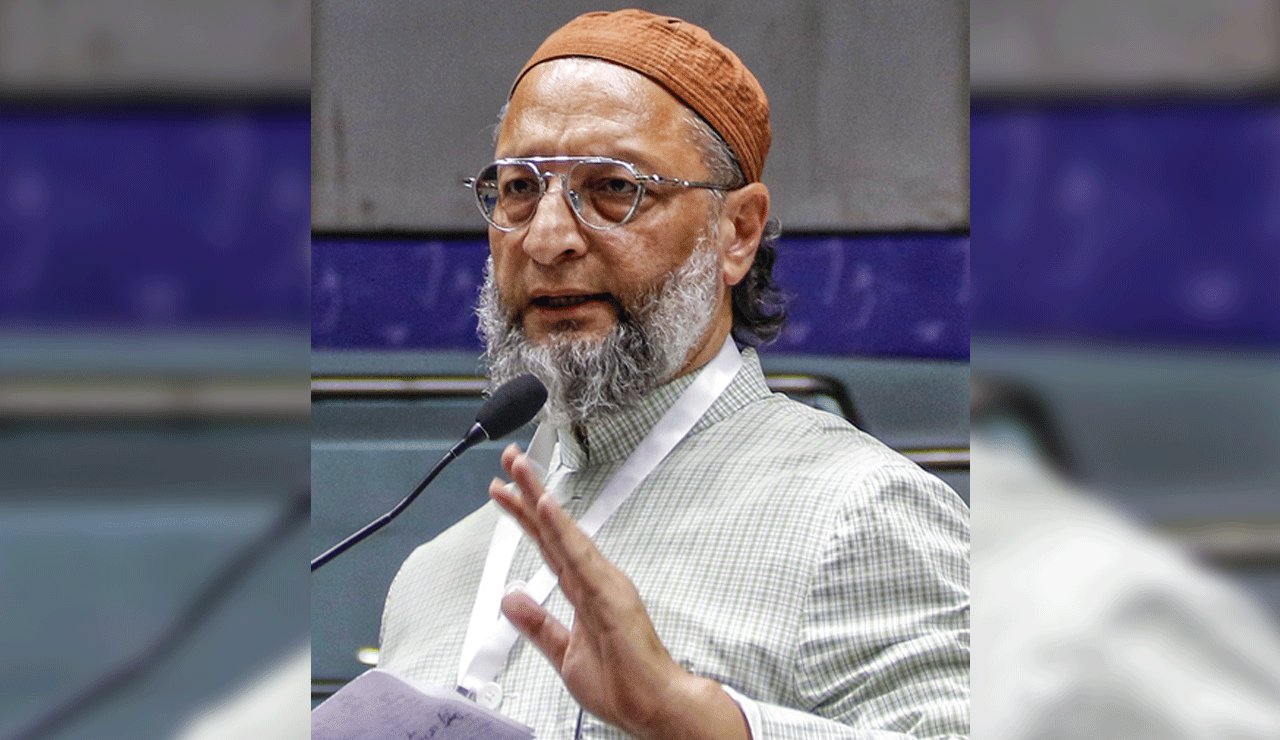Owaisi Warns Against Trusting Pakistan: “Keep FATF Pressure On”
All India Majlis-e-Ittehadul Muslimeen (AIMIM) chief Asaduddin Owaisi has raised strong concerns over the recent India-Pakistan ceasefire understanding, stating that peace is not possible as long as Pakistan continues to harbor and support terrorism on its soil.

Hyderabad: All India Majlis-e-Ittehadul Muslimeen (AIMIM) chief Asaduddin Owaisi has raised strong concerns over the recent India-Pakistan ceasefire understanding, stating that peace is not possible as long as Pakistan continues to harbor and support terrorism on its soil.
Table of Contents
Owaisi Questions Ceasefire Amid Continued Terror Threats
Following the ceasefire announcement between India and Pakistan on Saturday evening, Owaisi posted on X (formerly Twitter), stating:
“Ceasefire or no ceasefire, we must pursue the terrorists responsible for the Pahalgam attack. There can be no permanent peace as long as Pakistan uses its territory for terrorism against India.”
The AIMIM leader emphasized the need for decisive action against cross-border terror, stressing that military restraint should not mean softness on terrorism.
Owaisi Commends Indian Armed Forces, Pays Tribute to Martyrs
In his post, Owaisi praised the Indian Army for their bravery and professionalism during the recent conflict, writing:
“I thank the armed forces for their bravery and commendable skill. I pay homage to Army jawan M. Murali Naik and ADDC Raj Kumar Thapa, and I pray for all the civilians who were killed or injured.”
Also Read: TS EAMCET 2025 Results Drop Unexpected Twists — Check Yours Now!
He added that the ceasefire may offer relief to citizens in border areas, but stressed the need for unity within India to counter external threats.
AIMIM Chief Criticizes Foreign Mediation in Ceasefire Talks
Owaisi raised questions over the foreign role—notably by U.S. President Donald Trump—in brokering the ceasefire, noting that India has historically rejected third-party intervention in Kashmir.
“I wish our PM had announced the ceasefire, not a foreign president. Since Simla Agreement (1972), India has opposed third-party mediation. Why accept it now?”
He cautioned that involving external powers risks internationalizing the Kashmir issue, which India has long maintained is a bilateral and internal matter.
Calls to Keep Pressure on Pakistan Via FATF Grey List
Highlighting the importance of sustained international pressure, Owaisi called on the government to continue efforts to keep Pakistan on the FATF grey list, saying:
“Was our goal just to get a Trump-brokered ceasefire or to ensure Pakistan fears ever attempting another attack? We must keep the diplomatic campaign alive.”
He also questioned why talks are being held on neutral territory and whether there are any guarantees from Pakistan to cease terror support.
Ceasefire Confirmed by Indian Officials as “Understanding”
On Saturday, Foreign Secretary Vikram Misri officially confirmed that the Directors General of Military Operations (DGMOs) from both countries agreed to halt all military actions on land, sea, and air from 5 PM onward.
External Affairs Minister S. Jaishankar added:
“India has maintained a firm and uncompromising stance against terrorism and will continue to do so.”
India clarified that this was an “understanding,” not a formal agreement, while Pakistan termed it a ceasefire deal.
Background: Rising Tensions After Pahalgam Attack and Retaliatory Strikes
The ceasefire comes after Indian armed forces launched retaliatory strikes on terror camps in Pakistan and Pakistan-occupied Kashmir, following the April 22 terror attack in Pahalgam that killed 26 civilians.
The government has pledged to pursue the perpetrators and maintain a strong anti-terror posture, regardless of the current de-escalation.
